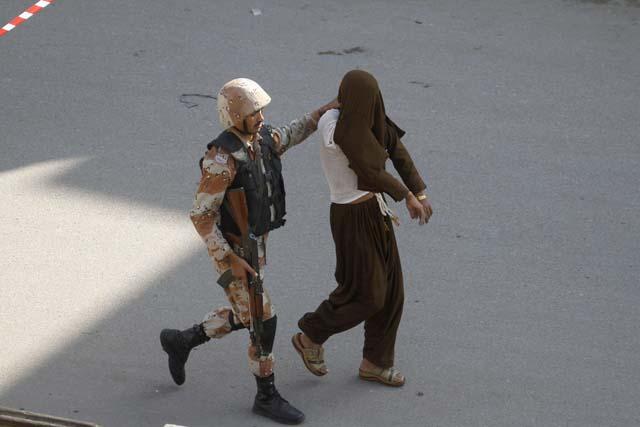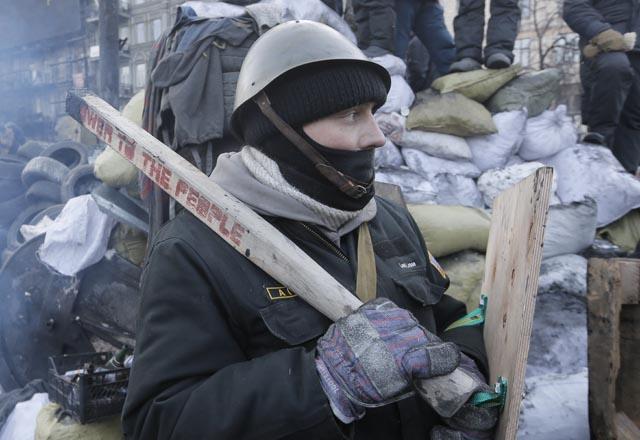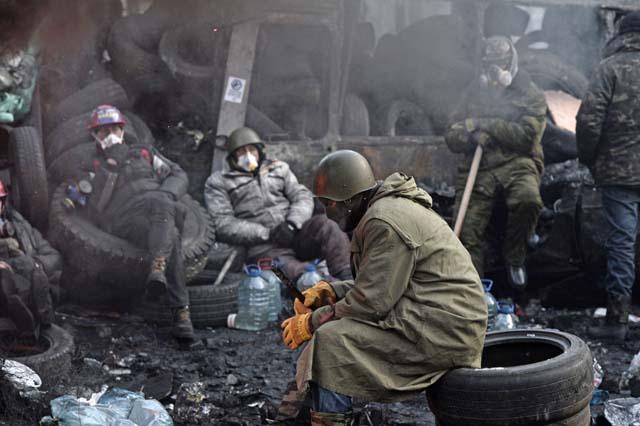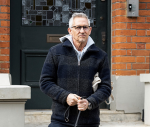WASHINGTON — President Barack Obama vowed on Tuesday to bypass a divided Congress and take action on his own to bolster America’s middle class in a State of the Union address that he used to try to breathe new life into his second term after a troubled year.
Standing in the House of Representatives chamber before lawmakers, Supreme Court justices and VIP guests, Obama declared his independence from Congress by unveiling a series of executive orders and decisions — moves likely to inflame already tense relations between the Democratic president and Republicans.
While his rhetoric was high flying, Obama’s actions were relatively modest, collectively amounting to an outpouring of frustration at the pace of legislative action with Republicans in control of the House of Representatives and able to slow the president’s agenda.
“I’m eager to work with all of you,” Obama told the lawmakers gathered for the annual speech. “But America does not stand still — and neither will I. So wherever and whenever I can take steps without legislation to expand opportunity for more American families, that’s what I’m going to do.”
Obama’s orders included a wage hike for federal contract workers, creation of a “starter savings account” to help millions of people save for retirement and plans to establish new fuel efficiency standards for trucks.
He said he was driven to act by the widening gap between rich and poor, and the fact that while the stock market has soared, average wages have barely budged.
“Inequality has deepened,” Obama said. “Upward mobility has stalled. The cold, hard fact is that even in the midst of recovery, too many Americans are working more than ever just to get by, let alone get ahead. And too many still aren’t working at all.”
Salute to wounded soldier
In an emotional, flag-waving finish to his speech, Obama drew a standing ovation from people of all political stripes by saluting the heroism of Sergeant First Class Cory Remsburg. The Army Ranger survived a roadside blast in Afghanistan and has recovered to the point where he attended the speech, seated next to first lady Michelle Obama.
“Like the America he serves, Sergeant First Class Cory Remsburg never gives up and he does not quit,” Obama said.
In a nod to bipartisanship, Obama drew applause with a brief tribute to John Boehner, “the son of a barkeeper” who rose to become speaker of the House of Representatives and the top Republican in Congress. Boehner gave Obama a thumbs-up.
Obama’s political objective in the address was to create a narrative for Democrats to use as they seek to head off Republicans eager to wrest control of the Senate from Democrats in November elections and build on their majority in the House.
The party in control of the White House typically loses seats in these so-called mid-term elections, but Democrats feel they stand a chance of limiting their losses or even making some gains.
To that end, Obama drew loud applause by underscoring in particular the economic plight of women, who he noted make up about half the US workforce but still earn 77 cents for every dollar a man makes. Women voters helped re-elect Obama in 2012.
“This year, let’s all come together — Congress, the White House and businesses from Wall Street to Main Street — to give every woman the opportunity she deserves, because I firmly believe when women succeed, America succeeds,” he said.
Obama’s governing strategy means he has scaled back ambitions for large legislative actions and wants to focus more on smaller-scale initiatives that can reduce income inequality and create more opportunities for middle-class workers.
The wage hike for federal contract workers to $10.10 per hour, for example, will mean a pay raise for only about 560,000 federal contract workers.
That’s only a tiny fraction of the number who would see bigger paychecks under stalled legislation to increase the minimum wage.
Some 3.6 million workers were paid the federal minimum wage in 2012.
Obama spent a sizable part of his speech hammering away at issues that have long been debated but remain stalled, like closing the US military prison at Guantanamo Bay, Cuba.
He renewed an appeal for Congress to give him the authority to speedily negotiate international trade agreements, a proposal held up by Democratic opposition.
And on one of his biggest priorities, immigration reform, Obama urged Congress to work together on an overhaul. He tempered his criticism of Republicans who have held up the legislation, with signs of possible progress emerging in recent days among House Republicans.
Obama stopped short of taking a step that immigration reform advocates have called on him to take. He did not take executive action to freeze the deportations of parents of children brought to the United States illegally.
“Let’s get immigration reform done this year,” he said.
‘Refighting old battles’
On healthcare, the issue that rocked his presidency and caused many Americans to lose confidence in him, Obama defended the overhaul law he signed in 2010 but did not make it a centerpiece, urging Americans to sign up for medical insurance coverage by a March 31 deadline.
He challenged Republicans to come up with a viable alternative instead of repeating past failed attempts to repeal the law.
“Now, I don’t expect to convince my Republican friends on the merits of this law. But I know that the American people aren’t interested in refighting old battles. So again, if you have specific plans to cut costs, cover more people and increase choice — tell America what you’d do differently,” he said.
Bill Galston, a Brookings Institution scholar, found Obama’s speech overall to be rather restrained compared to the usual partisan rhetoric in Washington.
“His language was mostly devoid of overt partisan provocation. On policy, he gave little ground to the Republicans, but he did little to confront them either,” said Galston, who had worked for Democratic president Bill Clinton.
Obama said nothing about whether he would approve the long-delayed Keystone XL Canada-to-Texas oil pipeline that environmentalists oppose.
Instead, Obama spoke passionately about the need to tackle climate change, a statement that could foreshadow more executive actions to reduce carbon emissions this year.
Obama said, “The shift to a cleaner energy economy won’t happen overnight and it will require some tough choices along the way. But the debate is settled. Climate change is a fact.”
Republicans clambered for some of the same rhetorical ground as Obama in pledging to narrow the gap between rich and poor but staked out a different vision for doing so.
US Representative Cathy McMorris Rodgers, chairwoman of the House Republican Caucus, said in her party’s official response to Obama’s speech that Republicans want to rely on free markets and trust people to make their own decisions, not have the government make decisions for them.
“The president talks a lot about income inequality, but the real gap we face today is one of opportunity inequality,” she said, videotaped seated on a couch in a living room setting.
With three years left in office, Obama is trying to recover from a difficult past year in office, when immigration and gun control legislation failed to advance in Congress and the rollout of the key provisions of his healthcare law stumbled.
Polls reflect a dissatisfied and gloomy country. An NBC News/Wall Street Journal poll released on Tuesday showed 68 per cent of Americans saying the country is either stagnant or worse off since Obama took office. People used words like “divided”, “troubled” and “deteriorating” to describe the state of the country, the poll showed.
Obama dwelled mostly on domestic issues in his hour-long address, but warned Congress he would veto any effort to increase economic sanctions on Iran as he tries to reach a comprehensive deal with Tehran to ensure it does not obtain a nuclear weapons capability.
A CNN poll found that 44 per cent of respondents viewed Obama’s address very positively while 32 per cent felt somewhat positively about it and 22 per cent were negative toward it.


















